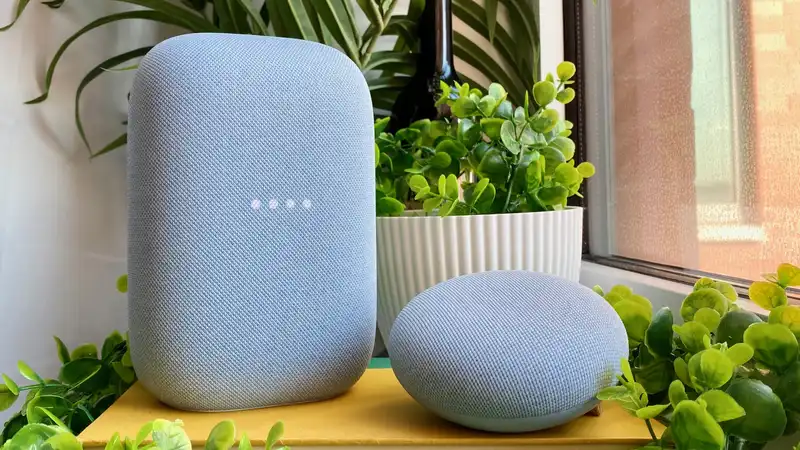The best smart speakers have one of three smart assistants: Amazon Alexa, Apple's Siri, or Google Home Assistant Alexa remains the most popular because it works with the widest variety of smart home devices and its superior speakers are not expensive Amazon's value gets even better when you consider its ease of use and versatility in both Android and Apple homes
Google Home Assistant is a trivia enthusiast's dream Thanks to the search giant's wealth of data, it is very knowledgeable when it comes to providing information Its more human-like speaking style and ability to understand multi-part commands make it stand out from its competitors They can also read more in-depth news, more personalized music content, and even email when using Google's services
HomePod speakers offer the best sound quality and secure local processing of all systems It is ideal for those within the Apple ecosystem However, Siri is not as smart at talking and providing information; Siri is primarily for controlling home devices and syncing calendar events, messages, etc with the iPhone
Alexa and Google have traditionally been the more popular platforms due to the wider range of compatible devices While each platform supports Matter, the advent of Matter has been most beneficial for Apple's HomeKit, as Matter gives HomeKit more smart home devices to choose from and allows Matter devices to migrate between platforms Matter devices can be migrated between platforms
Amazon's Echo was the first smart speaker to hit the market This speaker offers the best value due to its balance of affordability and impressive sound From the easy-to-use Alexa app, even smart home novices can build complex routines and automate tasks Thanks to easy-to-understand “if” and “when” building blocks, devices like smart lights can be told to turn on only at specific times on specific days
The Echo is also the most smart home-oriented device because it has sensors and works with the most devices Even the low-cost Echo Dot smart speaker can detect movement and temperature changes and trigger automation In addition, Alexa can also change the wake word, whereas the other two options are limited to “Hey Google” or “Hey Siri”
Alexa's assistant experience falls somewhere between Google's brainy helper and Siri's more rustic nature Alexa can browse the web for information and have basic conversations about the state of your smart home Google Assistant fleshes out its answers and provides more context to questions For example, if you ask for an actor's birthday, it will show you his or her biography However, Alexa's skills (essentially a voice app) can evolve over time
Alexa is the most universal platform and is perfect for most people But let's say you are in the Apple or Google ecosystem In that case, other assistants not only better integrate the passing of content between iOS (Siri) or Android (Google) phones, but also have stronger relationships with your accounts in those servicesAndroid Auto and Apple CarPlay mean that these assistants are at home, while driving, and on your phone for the tightest possible integration
Google's assistant is really smart and I consider it more of a “lifestyle” helper than the smart home-centric Alexa; Voice Match offers personalized calendar, flights, payments, photos, etc, and default media services You can even set default media services On top of that, it handles everyday tasks such as reservations and recommendations better
Nest's lineup of smart speakers is not as advanced as Amazon and Apple, as it does not have built-in smart home sensors to trigger routines In a showdown between Alexa and Google Assistant, Amazon's smart assistant can control devices faster However, Google Home can still create advanced routines And they don't make recommendations or push services like Alexa does
Google knows things Alexa does If you need quick information on how to use a gadget or find a nearby takeout spot, Google Assistant is the way to go
Apple's HomeKit prioritizes seamless connections between iOS devices and smart homes It encrypts and processes commands locally, resulting in a sophisticated experience with enhanced privacy and security Furthermore, as a physical universal smart home controller, it assumes that an iPhone or Apple Watch is always at hand
Like Apple's other hardware, you are paying a premium for a powerful device that “just works” HomePods offer unparalleled sound with woofers and tweeters that are superior to Alexa and Google speakers and are tailored to the acoustics of the room they are placed in They automatically adjust to the acoustics of the room in which they are placed If you're using Apple's ecosystem, you can pass calls, music, and other content with a single push (or simply tap your iPhone to guess)
Siri is not yet as smart as Alexa or Google, and when you ask it a question, it will say, “This is what I found on the web,” and take you to the link; expect this assistant to evolve with the arrival of Apple Intelligence Of course, it is quick to remind me of upcoming appointments and set alarms At the moment, however, it excels at commands such as controlling smart home devices and playing content Managing devices like robotic vacuum cleaners still requires the use of third-party apps until the next HomeKit Matter update comes along This platform has the potential to be the best option in the long run, but at the highest price










Comments